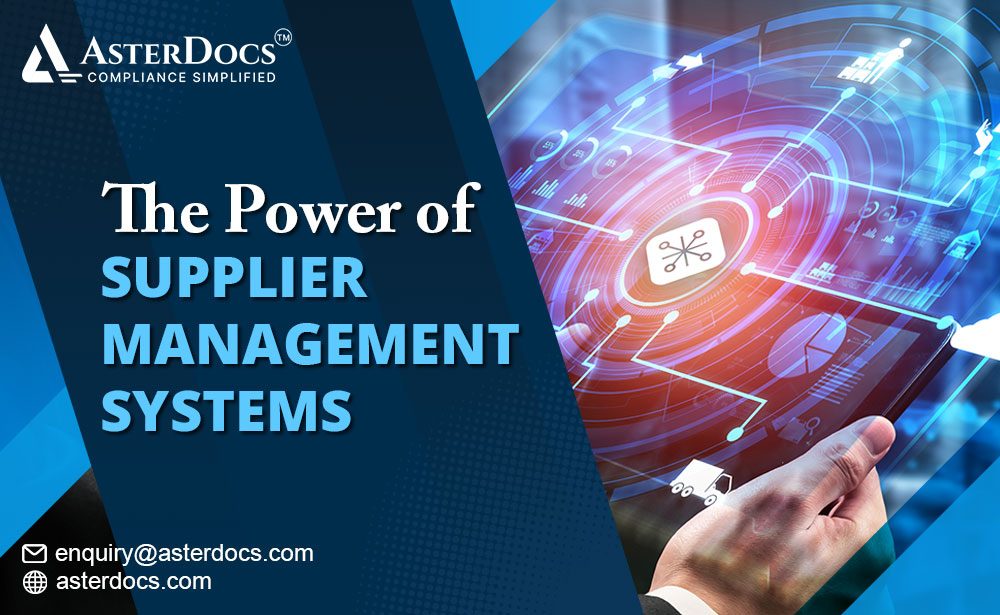In the dynamic landscape of modern business, supplier relationships are pivotal to success. Companies rely on suppliers to provide the necessary goods and services that keep operations running smoothly. To unlock the full potential of these partnerships and maximize supplier value, organizations are turning to advanced tools known as Supplier Management Systems.
Understanding Supplier Management Systems
Supplier Management Systems, referred to as Supplier Management Software or Vendor Management Systems, are technology-driven solutions designed to enhance the entire supplier lifecycle. These systems streamline processes, improve communication, and optimize collaboration between businesses and suppliers.
The Role of Supplier Management Systems
Supplier Management Solutions play a multifaceted role in optimizing supplier value:
- Streamlined Supplier Onboarding: Supplier Management streamline the onboarding process for new suppliers. They enable automated data collection, documentation, and verification, reducing the time and effort required to bring new suppliers into the fold.
- Centralized Data Repository: These systems provide a centralized repository for all supplier-related information. From contracts and certifications to performance metrics, everything is accessible in one place. This improves data accuracy and ensures easy retrieval of critical information.
- Enhanced Communication: Effective communication is at the heart of successful supplier relationships. Supplier Management Systems offer communication channels that enable businesses and suppliers to interact seamlessly. This facilitates more transparent communication, reducing misunderstandings and potential disruptions.
- Performance Tracking and Evaluation: These systems closely monitor supplier performance. Key performance indicators (KPIs) are tracked, allowing businesses to assess supplier performance objectively. This data-driven approach helps identify top-performing suppliers and areas for improvement.
- Risk Management: Supplier Management Systems incorporate risk assessment tools that evaluate potential risks associated with suppliers. This helps businesses identify vulnerabilities and implement strategies to mitigate risks, ensuring a more resilient supply chain.
- Contract and Compliance Management: These systems assist in managing supplier contracts and regulatory compliance. Automated alerts for contract renewals and compliance deadlines ensure businesses adhere to agreements and regulations.
- Collaboration and Innovation: Supplier Management Systems encourage suppliers to contribute innovative ideas by fostering collaboration. This can lead to joint efforts in improving products, processes, and overall business outcomes.
- Data-Driven Decision-Making: Supplier Management Systems generate data-driven insights that aid decision-making. Based on empirical evidence, businesses can make informed choices about supplier partnerships, contract negotiations, and supply chain strategies.
Maximizing Supplier Value
The integration of Supplier Management Solutions into business operations offers several benefits:
- Operational Efficiency: Automated processes reduce manual intervention, enhancing operational efficiency. Time-consuming tasks like data entry, document verification, and performance tracking are streamlined.
- Cost Savings: Efficient supplier management translates to cost savings. By optimizing supplier relationships, businesses can negotiate better terms, avoid disruptions, and reduce the costs associated with poor supplier performance.
- Agility and Adaptability: Agility is crucial in a rapidly changing market. Supplier Management provide the flexibility to adapt to market shifts, regulatory changes, and emerging risks, ensuring business continuity.
- Supplier Collaboration: Collaboration is a two-way street. Supplier Management enable better collaboration by facilitating seamless communication, information sharing, and joint problem-solving.
- Improved Decision-Making: Data-driven insights empower businesses to make informed decisions. These systems offer real-time visibility into supplier performance and supply chain operations, enabling proactive decision-making.
- Risk Mitigation: Identifying and addressing risks is fundamental to supplier management. Supplier Management Solution aid in risk identification, assessment, and mitigation, safeguarding business operations.
- Enhanced Supplier Relationships: Supplier Management build stronger supplier relationships based on trust and mutual success by providing a platform for transparent communication and collaboration.
Choosing the Right Supplier Management System
When selecting a Supplier Management Software, businesses should consider scalability, integration capabilities, user-friendliness, and customization options. The chosen system should align with the organization’s unique needs and growth trajectory.
Elevate Supplier Management with AsterDocs: Your Ultimate Solution
Discover the power of AsterDocs, a cutting-edge supplier qualification software designed to empower modern businesses. By seamlessly streamlining supplier management, risk identification, and collaboration across your supplier network, AsterDocs revolutionizes your approach. Effectively anticipate and manage risks, ensuring supply chain resilience and fostering sustainable growth.
Conclusion
In a globalized business landscape, supplier relationships hold immense value. Maximizing this value requires effective management, clear communication, and strategic collaboration. Supplier Management Systems are the backbone of these efforts, enabling businesses to streamline processes, mitigate risks, and unlock the full potential of their supplier partnerships. By embracing these systems, organizations position themselves for sustained growth, innovation, and success in an ever-evolving market.













